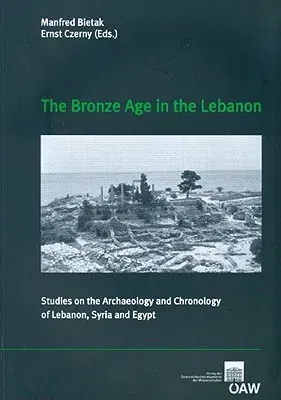The volume offers a selection of scholarly articles that present both
new data and its interpretations and a reanalysis and synthesis of
already existing data, ranging from the Early Bronze Age through the
beginning of the Late Bronze Age. In geographical terms, the regions
listed in its subtitle are the heart of the volume, but there are also
important implications for the archaeology of the southern Levant, the
Aegean, Cyprus and Anatolia. Thematically, the volume concerns
cross-cultural connections and chronology, and their reciprocal
relationship. The team working on the finds from Tell Dab'a presents a
number of important syntheses. D. Aston's contribution offers a summary
of the scholarship on the so-called Tell el-Yahudiyeh pottery, which is
a crucial marker for synchronizing Egypt, the Levant, and Cyprus. K.
Kopetzky's presentation of the Hyksos period pottery is a long-awaited
summary of the key site for this subject. R. Scheistl discusses the
local and foreign attributes in the mortuary tradition at Tell Daba. I.
Forstner-Muller's presentation of a scimitar from 13th dynasty Tell Daba
demonstrates the adoption of broader Mesopotamian weapons and martial
symbols among Egyptianized Asiatics in the Delta. From the Lebanon, C.
Doumet -Serhal's report on the excavations at Sidon offers a glimpse
into the ground-breaking discoveries this site offers and will likely
continue to produce for understanding the Early and Middle Bronze Age
trade in the eastern Mediterranean and its relations to the Aegean. The
latter is expanded upon by MacGillivray's discussion of what may be
among the earliest Minoan import to the Levant. Y.M. Bou-Assaf discusses
the architectural traditions of Byblos, which is complemented by J.P.
Thalmann's synchronization of this site with his own excavations at Tell
Arqa. A welcome summary is R. Pruzsinszky's and M. Heinz' discussion of
the rare Levantine assemblage of cuneiform texts from Kamid el-Loz. P.
Fischer's article on an enigmatic coastal (from Beirut?) import to the
Jordan Valley is a case study on the interdisciplinary application of
typology and petrography to long-distance trade. Three contributions
from the Italian team excavating at Tell Mishrifeh/Qatna by Iamoni,
Luciani, and Morandi-Bonacossi, treat the local simple ware, decorated
and imported ware, and the Early Bronze-Middle Bronze Age transition,
respectively. Lastly, relations between Syria and the eastern
Mediterranean world (specifically Egypt) is underscored by Lagarce and
Puytison-Lagarce in their article on the finds from Ras Ibn-Hani, one of
Ugarit's ports.

